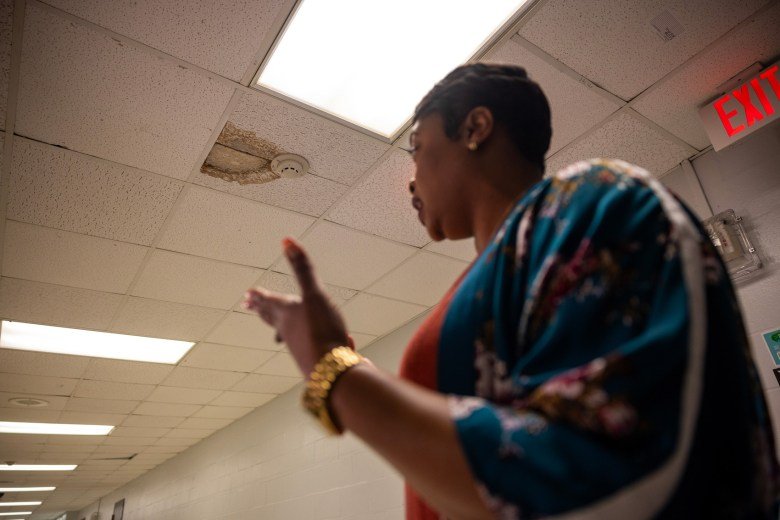If you’re a Houston ISD voter planning to cast a ballot Tuesday, your Election Day preparations might include reading up on the district’s historic $4.4 billion school bond package, a controversial proposal that will impact HISD operations for years to come.
The bond would allow HISD to make long-overdue upgrades to dozens of schools, though opponents argue the district’s state-appointed leadership can’t be trusted with so much money.
The election represents the first opportunity for community members to vote on an issue meaningfully affecting district operations since the Texas Education Agency took over HISD in June 2023 and appointed Superintendent Mike Miles. Some community leaders are treating the vote as a referendum on his performance.
If you’re still figuring out where you stand, here’s what to know.
What the bond would do
The $4.4 billion total value of HISD’s proposed bond would make it the largest school package ever in Texas. If passed, the money would be used to:
Under the plan, eight schools would move out of their current buildings and into another nearby campus, in an arrangement HISD calls “co-location.” Co-located schools would mostly have separate staffing and operate in different buildings or wings of the same building, but they would share certain facilities, such as cafeterias and athletic grounds.

Supporters’ key arguments
Endorsed voting “Yes”: Harris County Judge Lina Hidalgo, Houston Hispanic Chamber of Commerce, Houston Region Business Coalition, BakerRipley, Greater Houston Partnership, Children at Risk, Good Reason Houston, EdTrust.
Their take: Supporters of the HISD bond argue the district’s dire need to upgrade campus facilities should trump individuals’ feelings toward Miles, who has orchestrated a controversial, sweeping overhaul of the district. Most large school districts pass a bond roughly every five years, but it’s been 12 years since HISD last did so.
HISD’s 2012 bond mostly invested in high schools, delivering notable facelifts to Austin, Bellaire, DeBakey, Lamar, Madison and Sharpstown high schools, among other campuses. Most of HISD’s elementary and middle schools have not seen major investments since the district’s 2007 bond. Families at those campuses have complained about leaks, insects, mold and more.
Opponents’ key arguments
Endorsed voting “No”: Harris County Democratic Party, Harris County Republican Party, Houston Federation of Teachers, Houston Chronicle editorial board, NAACP Houston Branch, former Houston Mayor Sylvester Turner, Greater Houston LULAC Council, Houston LGBTQ+ Political Caucus.
Their take: Many opponents of the bond argue Miles’ leadership of HISD has been destructive, leading them to believe they can’t rely on his administration to act as responsible stewards of billions of dollars in spending. Many members of the wide-ranging, bipartisan coalition opposing the measure have rallied behind the slogan, “No trust, no bond.”
Over his year and a half leading HISD, Miles’ opponents have accused him of creating a hostile working culture for educators, telling teachers who dislike his tactics to leave the district and forcing out beloved principals. In May, Dallas-based Spectrum News reported that a charter school network Miles founded had inappropriately diverted state funds to schools in Colorado, but TEA investigators reported in October that they found “no evidence” of wrongdoing.


What it means for your taxes
The HISD bond would not raise property tax rates, according to the district. HISD said it will be able to pay off the bond-related costs while keeping rates flat thanks to increasing property values across the district, which generate more tax revenue.
On the ballot, however, the bond package says, “This is a property tax increase.” Texas law requires such terminology regardless of whether the bond will hike tax rates.
The language speaks to the fact that, if the bond fails, HISD leaders theoretically could choose to reduce tax rates in the future rather than continuing them at the current rate of about 17 cents per $100 of assessed value, equivalent to about $400 per year for a homeowner whose property is valued at $300,000 with a standard homestead exemption.
The bond will take about three decades to pay off, with financing that works similarly to a home loan. The value of the bond is $4.4 billion, but, with interest, the total cost to be paid back will total $8.9 billion.
What it means for your neighborhood school
Practically all HISD schools will receive some level of investment under the bond plan. Use our search tool to see how the proposal would impact your neighborhood campus.
Read more about the bond
For more information about the HISD bond, check out the stories below.
Asher Lehrer-Small covers Houston ISD for the Landing. Find him @by_ash_ls on Instagram and @small_asher on X, or reach him directly at asher@houstonlanding.org.











